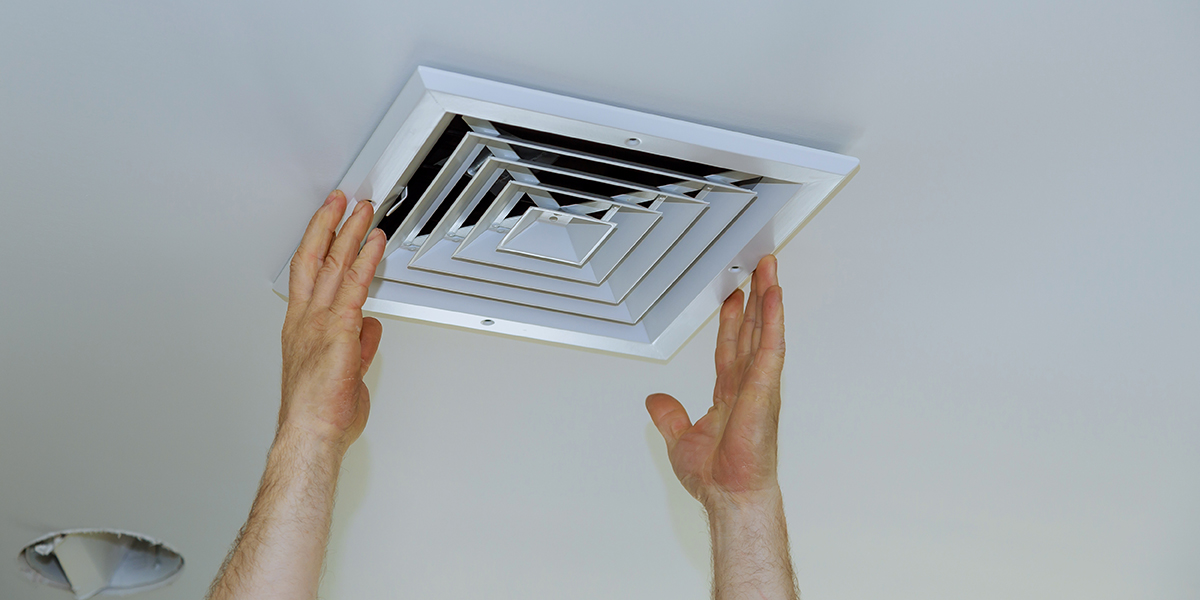Have you ever experienced that disconcerting sensation, akin to an unanticipated spring rainstorm, while lounging comfortably at home? A drip—then another—falls insistently from your air conditioning vent. You glance up, and suddenly, your sanctuary feels more like a dripping disaster zone. An AC vent leaking water is not merely an inconvenience; it’s a symptom of underlying issues that demand your immediate and nuanced attention. Understanding the intricacies of this predicament could save your home from water damage and restore your peace of mind.
Picture this: your air conditioner, much like a diligent worker, is tasked with maintaining the temperate balance of your home. It cools the air, circulating refreshingly crisp breezes on sweltering days. However, when the rhythms of this mechanical maestro are interrupted, complications arise. Water pooling beneath the vent is not just an unnerving sight; it could signal several potential mishaps in your system. So, let’s embark on a journey to decipher the mystery of why your AC is leaking and discover the remedies available.
Understanding the Root Causes
To address the dripping disaster timely and effectively, one must first uncover the root causes of your AC vent’s leak. There are several culprits that could lead to moisture cascading through the vent, and recognizing them is akin to solving a mystery.
- Clogged Drain Line: Much like a narrow river overflowing its banks, a blocked condensate drain line can lead to water buildup. Dust, debris, and algae can accumulate, creating a blockade that restricts flow. As the AC runs, excess moisture has nowhere to go, consequently venturing out through the vents.
- Dirty Air Filters: The air filters serve as the lungs of your HVAC system, filtering out pollutants and allergens. When these filters become inundated with dirt, airflow is restricted, causing evaporator coils to freeze. When the ice melt, it can contribute to excess water leaking from your unit.
- Faulty Installation: An air conditioning system improperly installed can leave leaky areas where water escapes. A poorly set drip pan or inadequate insulation can turn your cooling machine into a malfunctioning fountain.
- Refrigerant Issues: Refrigerant plays a pivotal role in the cooling process. A low refrigerant level can cause the evaporator coils to freeze over, leading to similar thawing consequences upon shutdown—hence the dripping water.
- Temperature Changes: Sometimes, seasonal shifts bring strange anomalies. During the winter months, when the AC is not the primary source of cooling, condensation can form inside the unit if it isn’t adequately winterized.
The Immediate Steps to Take
Understanding the “why” is just the beginning. Now, let’s contemplate some immediate actions you can take if you find yourself inundated in a cooling calamity:
- Turn Off the Unit: Your first line of defense should always be to switch off the air conditioning system. Allowing it to continue running amid the leaks can worsen potential damage, leading to mold growth or electrical issues.
- Inspect the Filters: Begin with the basics. Examine your air filters and replace or clean them if they appear dirty. This straightforward maneuver could alleviate several issues in one fell swoop.
- Check the Drain Line: Locate the drain line and, if accessible, assess it for clogs. Utilizing a wet/dry vacuum can be helpful in removing debris and restoring flow.
- Examine the Drain Pan: Look for any cracks or misalignment in the drain pan. Should it appear damaged, a replacement might be in order to prevent further leaks.
- Call in the Professionals: If the issue persists, or if you are uncertain about your diagnosis, it’s prudent to enlist the expertise of an HVAC professional who can conduct a comprehensive evaluation.
Preventive Measures
Now that you’ve navigated through the initial hassle, let’s explore the enchanted realm of prevention. Consider it akin to tuning an instrument—regular maintenance will keep your AC in prime condition, ensuring it plays melodious notes and avoids dissonant drips.
- Regular Maintenance: Schedule routine inspections with a qualified technician. A professional will meticulously analyze the system for potential issues, perform necessary cleanings, and ensure everything aligns harmoniously.
- Keep Filters Clean: Change or clean your air filters monthly—especially during peak season. This simple practice can enhance efficiency and prolong the life of your air conditioning unit.
- Upgrade Your Unit: If your air conditioner is older or frequently malfunctions, exploring replacement options may prevent future headaches. Modern systems are often more efficient and come equipped with enhanced technology for moisture management.
- Seal Ductwork: Ensuring your ductwork is well-maintained and sealed might seem trivial, but it dramatically affects airflow and moisture levels throughout your home.
Conclusion
As you conclude this expedition into the world of AC vent leaks, remember that knowledge is your foremost ally. Whether navigating the root causes of the issue or taking immediate steps to remedy the situation, vigilance and awareness of preventive measures are crucial. Your home should be a refuge—a sanctuary unbothered by the woes of dripping disasters. With attention and care, you can ensure your air conditioning unit continues to perform melodious services, leaving behind a refreshing atmosphere and a leak-free experience.
